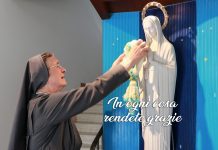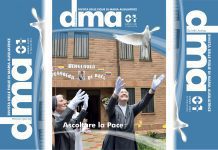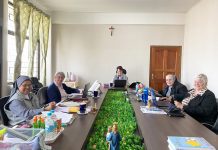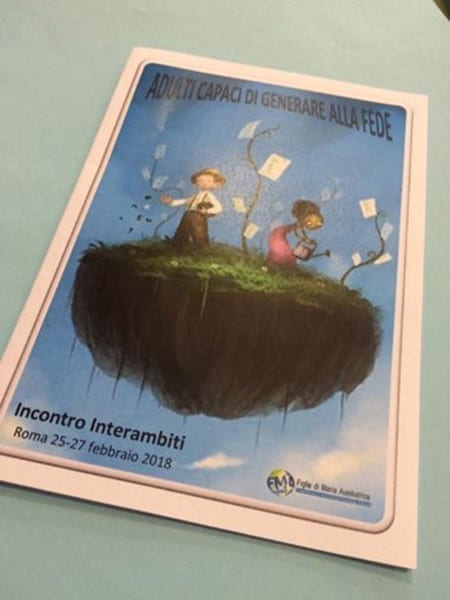Rome (Italy). On February 26-27, Rome hosted the Inter-Sector meeting, organized by the Italian Interprovincial Conference CII.
The meeting began with the Eucharistic Celebration presided by Fr. Andrea Bozzolo, SDB and was followed by the presentation on the theme: “Adults able to generate the faith”.
Fr. Andrea developed the theme in four points:
Adolescence and adulthood: an adolescent is one who goes towards the whole. The adult has already arrived at the whole but is always on the way to fullness. Human growth is about identity, an identity that is also narrative. The road to take, the fullness to be achieved is not a personal but a relational fact. To discover the identity, a man/woman must listen to the voice of others and of the Other. The challenge for the adolescent is the still open path. The challenge for an adult, who has come to self-mastery, is relationship. The teenager questions self. The adult is the one who has faced the question about self, the adult is generative.
A cultural provocation “absent adults” and “fragile and arrogant” adolescents. Today we live the contradiction of non-generative and absent adults. What counts is the image and not an integral view of the adult. The age of adolescence is prolonged to infinity and the age of maturity is contracted. Teenagers are increasingly fragile and arrogant: they do not recognize significant adults and react accordingly. The generative adult does not hide behind the adolescent, but proposes itself through the experience of the human, as a person who “fought the good fight”, which transmits a content energy (Fr. Cimatti).
A biblical provocation: adults in the faith. The Letter to the Hebrews 15:14 shows the definition of adult in the faith expressed after a significant Christological text of Hebrews 15:7-14. Jesus learns from the things He suffers, the mature person is the one who becomes aware of self in the journey of life, in the discovery and realization of the personal vocation. The place of being an adult is the place where God dwells, the adult reaches self-mastery by making room for God. Don Bosco saw in Jesus the master of familiarity (letter from Rome 1884).
The gift of the generative adult: witness. The original location of the term witness is the juridical sphere. We testify to inform about the facts. We are not self-transparent, we are a big question to ourselves. The testimony of someone who shows us the light of truth illumines the way. The Christian is called to be present with the witness of the Gospel leaven, a person who has had the grace to make this experience. They have no truth in their pocket but are overcome by the truth of Jesus and cannot hide this experience of joy and encounter. They know they are inadequate witnesses, but they cannot be silent. God is not an argument; believers simply let God speak through them. In this sense we are credible witnesses. The testimony appeals to one who is outside: God who speaks to the conscience of the listener. Lives depend on our yes and our no.
The meeting continued in the afternoon with the presentation of Sr. Maria del Carmen Canales, FMA, Superior of Mother of the Church Preprovince who spoke on the theme: “Adult communities able to generate: processes and experiences” leading the work in various steps.
First Step: with the technique of the world-cafe divided into three groups, revolving around three tables, we identified a process and defined three stages for its realization, three difficulties that are encountered in giving life to processes, three conditions to give life to a process.
Second Step: listening to the presentation of Sr. Maria del Carmen. Here are some points of the report: “Speaking of an adult community involves religious and lay people who have an educational role towards the young. The task is to widen the windows to look at the world from an ever-broader horizon. Facing the difficulties in approaching the young, we ask with the disciples: “Lord, do not you care if we die?”. Jesus’ answer is strong: “What are you afraid of?”. We are called to generate processes, within the horizon of pastoral conversion. The conditions required are: a change of mentality in the process of animating educational areas, capacity to learn and to unlearn continually, flexibility, and creativity.
The means available: to feel that we are always in a state of ongoing formation; a more open mentality and logic of the itinerary; feeling the joy of the call; open and welcoming communities; time and space dedicated to the mission; space for reflection on the animation structure, attention to the peripheries.
Some pastoral orientations: processes of initiation to the faith beginning with the involvement of the parents and of the families in networks of solidarity and the communion of goods.




















